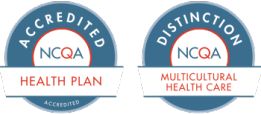- Blood lead testing for members under 21
- Breast cancer services – services to treat breast cancer as required by federal and state women’s health and cancer protection acts. This includes diagnostic, outpatient treatment and rehabilitative services
- Child and adolescent health centers
- Chiropractic services
- Dental services
- Diagnostic laboratory, X-ray and other imaging services
- Doctor office visits
- Emergency and urgent care services
- Family planning services
- Federally qualified health centers
- Health education such as chronic condition management programs
- Hearing exams and hearing aids
- Home health services and skilled nursing home services. You can use these after you leave the hospital. Your doctor will help you arrange these services.
- Hospice services
- Hospital services requiring an overnight stay, including:
- Cost of a semi-private room (sharing a room with one other person)
- Intensive care nursing services
- Doctor services
- Surgical services
- Anesthesia (medication to relax or put you to sleep before surgery)
- X-rays
- Laboratory services
- Durable medical equipment and supplies
- Mental health services – for mild to moderate, medically necessary outpatient visits
- Midwife services when provided by a certified nurse midwife
- Nurse practitioner services when provided by a certified pediatric or family nurse
- Out-of-network and out-of-state services when authorized by Blue Cross Complete
- Parenting and birthing classes
- Physical exams – routine or annual
- Podiatric (foot specialist) services when medically necessary
- Practitioner services such as those provided by physicians and specialists
- Pregnancy care, including prenatal and postpartum care (before and after birth)
- Prescriptions and pharmacy services
- Prosthetics and orthotics
- Rehabilitative or restorative services – intermittent, or short-term, care that's in a nursing facility for up to 45 days
- Rehabilitative or restorative services in a place of service other than a nursing facility
- Renal disease services – end stage
- Sexually transmitted disease treatment
- Smoking and tobacco cessation treatment, including drugs and behavioral support (Michigan Tobacco Quit Program)
- Specialist visits
- Surgical services that don't require an overnight hospital stay
- Therapy – physical, speech and language and occupational
- Transplant services
- Transportation by ambulance and other emergency medical transport
- Transportation to non-emergency covered medical services
- Vaccinations – covered vaccinations don't require prior authorization if provided by local health departments
- Vision – routine services
- Weight-reduction services if medically necessary
- Well-baby and well-child care – Early Periodic Screening Diagnosis and Treatment Program for persons under age 21

